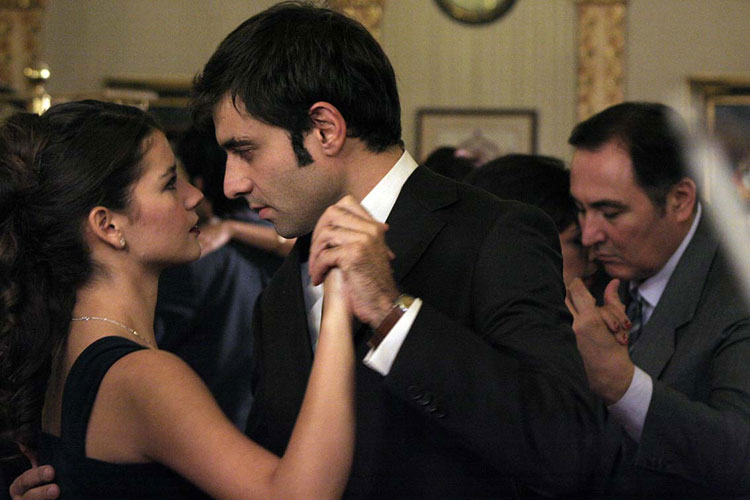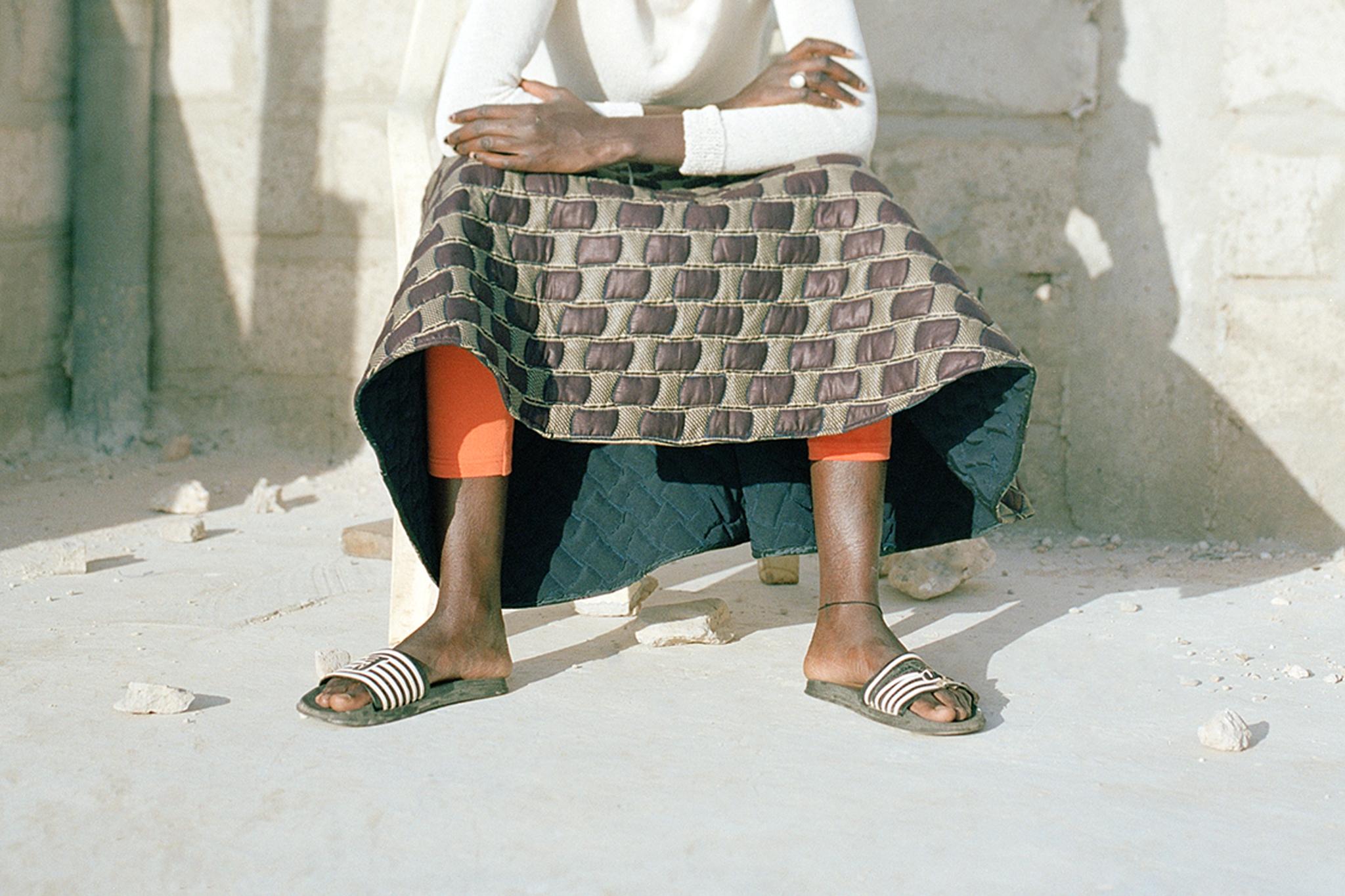Those of us who have grown up bilingually, but who live their everyday lives in the German language, may already have experienced similar situations: the moment in Turkey, when you feel lost in everyday situations because you are insecure in your language. Then you make an embarrassing mistake when you buy something in the bakkal (neighbourhood shop). Or you wonder whether “İnşallah” or “Amin” is the right answer if your aunt wishes you would achieve your goals.

“İnşallah” is literally translated as “God willing”, but is also used as a synonym for “hopefully” and regardless of whether one is a believer or not. In the Turkish language, there are countless phrases and sayings. These are often thought to be meaningless and superfluous, but in many situations they can save you. That is, if you master them.
Mama, what do I say when…

I have asked my mother, who was born and raised in Turkey too many times: “Mama, what do I say when someone has had a baby?” So I don’t accidentally offer my condolences. Although it is on the tip of my tongue, I would rather make sure – and not embarrass myself. I’ve got into embarrassing situations too many times. For example, when I wanted to say to my cousin “Get well soon!” but “İyi iyileşmeler” burst out of me. A few seconds later (or too late) I remembered that you’re supposed to say “Geçmiş olsun!”. It can’t be that difficult. That is one of the reasons for the following list. I would like to give you (and me) a small overview of the most common words. Whether for your travels to Turkey, at a Turkish wedding or talking to a Turkish taxi driver, the right phrase can quickly break the ice.
First Round of Sayings
Saying |
Meaning |
Possible response |
| Hoşgeldin | Welcome | “Hoş bulduk!” |
| Afiyet olsun | Bon appétit | “Sağol!” (Thanks) |
| Ellerine Sağlık | Literally: “Health for your hands”. You say it when someone has cooked something particularly delicious. | “Afiyet olsun.” |
| Hayırlı Olsun | All the best | “Sağol/ Teşekkürler” (Thanks) |
| Naber? (Ne Haber) | You say it as a greeting and it means “What’s new?” | “İyiyim, sağol. Senden naber?” |
| Çok yaşa! | You say it when someone sneezes. Literally: “Live long” | „Hep beraber“ or „Sende gör“ |
| Ayağınıza sağlık! | It means “Health for your feet” and you say it to guests when they’re leaving. This thanks them for coming. | “Görüşürüz” = “Bye” |
| Allah bir yastıkta kocatsın. | You say this to a couple getting married. It’s a wish that they grow old together. | “Amin.” |
| Gözünüz aydın! | When someone has received good news. | “Sağol!” |
| Maşallah! | It means “God watches over you” and you use it to praise someone | – – |
| Kolay gelsin! | If someone is working you can say this to wish that their work will be easy. e.g. You would say it to a vendor when saying goodbye or if someone is busy in the kitchen | “Sağol!” |
| Geçmiş olsun! | Literally: “It will be over”. It means “Get well soon” | “Sağol!” |
| İnşallah! | “God willing” meaning “hopefully” | |
| Allah Analı Babalı büyütsün! | You say it upon the birth of a baby and it means “May God allow this child to grow up with both parents” | “Amin.” |
| Sıhhatler olsun! | You say this to someone who has just come out of the shower (or a man who has just shaved his beard) | “Sağol!” |
| Nazar değmesin! | “You should be protected from evil eyes” | “Amin.” or “Maşallah!” |
| Hayırlı işler | “Good luck with your work” | “Sağol!” |
| Başınız sağ olsun | When someone dies you can say this to offer your condolences. It literally means “I hope your head remains healthy” | “Amin.” or “Dostlar sağ olsun.” |
| Allah rahmet eylesin! | To offer condolences: “God rest his soul” | “Amin.” |
Second Round of Sayings
Saying |
Meaning |
Possible response |
| Canınız sağ olsun | “My deepest condolences” | – – |
| Allah sizi kazadan beladan korusun | “May God protect you from suffering and sadness” | “Amin.” |
| Tebrikler! | “Good luck”; you might say this to a couple getting married | “Teşekkürler.” |
| Allah kavuştursun | When someone has been travelling far or for a long time, you would say, “May God bring us together again” | “Amin.” |
| Yolun açık olsun | “Your path shall remain clear” is said when people are making plans or you’re wishing them well for the future | “Sağol!” |
| Gözün açık olsun! | It means “Keep your eyes open” and it is a synonym for “Pay attention” or “Be careful” | – – |
| Güle güle kullan! | Literally: “Use it with a smile”. You say it to someone who has just bought something, like a car or some clothes | “Sağol!” |
| Allah sabır versin. | “May God give you patience” | “Amin.” |
| Allah uzun ömür versin. | It means “May God give him/her a long life” and you say it for example if someone is talking about their elderly grandparents | “Amin.” |
| Kusura Bakma! | Literally: “Don’t see my mistakes”. It means “Excuse me” | – – |
| Kesene Bereket | “Blessings for your wallet” you say, for example, if someone pays the bill at a restaurant | – – |
| Tövbe tövbe! | It more or less means “Take back what you said” and you say it if someone predicts something bad happening | “Sen de tövbe de!” |
| Öptüm! | “I kissed you” and it is used to say goodbye on the phone | “Ben de! Hadi görüşürüz.” |
| Kısmetse… | “If it’s meant to be it will happen” is used when talking about the future or a love interest | “Hayırlısı.” |
| Elin dert görmesin | Literally means: “Your hands shouldn’t see any problems”. You say it if someone is doing a very one-sided job. | “Sağol/ Teşekkürler.” |
| Darısı senin başına | “Even better things are in store for you”. You might say this to a single person at a wedding, meaning “You too will find happiness” | “Inşallah bize de kısmet olur.”/ “Kısmetse.” |
Amin or Sağol?
As you can see from the list, the golden rule is to answer with “Amin” as soon as “Allah” appears in the phrase. With many sayings where a good thing is desired, you can react with “Sağol!”. And sometimes you have to realize that there is no (perfect) answer, so you can let the phrase hang in the air.
Text: Betül Koca
Title image: Shutterstock.com, GIFs: giphy.com



